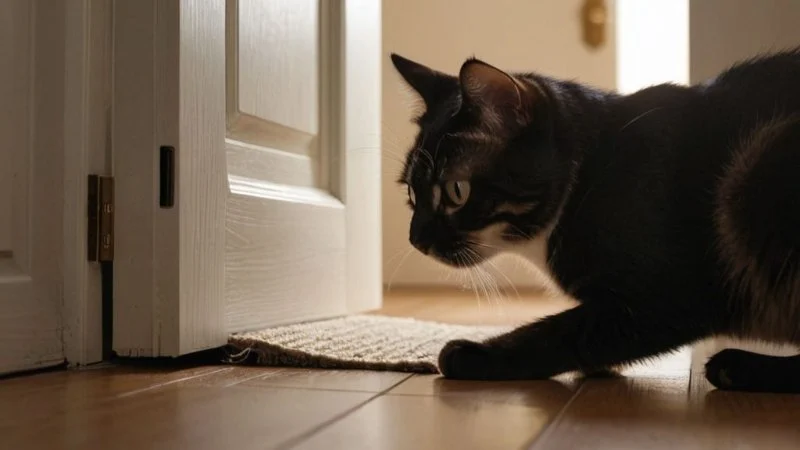
- 1 - Understanding Cat Scratching Behavior
- 2 - Why Cats Scratch at the Door at Night
- 3 - Effective Solutions to Stop Nighttime Scratching
- 4 - Creating a Comfortable Environment for Your Cat
- 5 - When to Seek Professional Help for Your Cat’s Behavior
1. Understanding Cat Scratching Behavior
Scratching is a natural and essential behavior for cats. It’s not just a way for them to sharpen their claws, but also a means of marking territory, stretching their muscles, and relieving stress. However, when this behavior becomes excessive, especially at night when you’re trying to sleep, it can be frustrating. Understanding why your cat scratches at the door and how to address the underlying causes can help you manage and modify this behavior effectively.
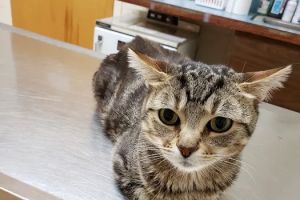
Piscataway Animal Clinic
PiscatawayMiddlesex CountyNew Jersey
13 Stelton Rd, Piscataway, NJ 08854, USA
2. Why Cats Scratch at the Door at Night
There are several reasons why cats scratch at the door at night, and addressing these reasons can help you find the most effective solution. Here are some common causes of nighttime scratching:
2.1 Seeking Attention
One of the most common reasons cats scratch at doors is to get your attention. If your cat is used to you opening the door to let them in or out, they may scratch as a way of asking for interaction. This is especially true if your cat feels lonely or wants to play, but it’s important to discourage attention-seeking behaviors at night.
2.2 Hunger or Thirst
Another reason for scratching at night could be that your cat is hungry or thirsty. Cats are creatures of habit, and if they are accustomed to a late-night meal or snack, they might scratch at the door as a way to signal their need for food. Make sure your cat has access to food and water before bedtime to reduce the likelihood of late-night scratching.
2.3 Anxiety or Stress
Stress or anxiety can also lead to scratching. If your cat is feeling anxious or insecure, scratching may serve as a way to release that tension. Changes in routine, unfamiliar environments, or new household members can trigger anxiety in your cat. Scratching could be a coping mechanism to deal with these emotions.
2.4 Habitual Behavior
For some cats, scratching is simply a habit they have developed over time. If your cat has been allowed to scratch at the door without intervention, they may continue this behavior, associating it with gaining attention or getting their needs met. In these cases, breaking the habit requires patience and consistency.
3. Effective Solutions to Stop Nighttime Scratching
Now that you understand why your cat is scratching at the door at night, here are some effective solutions to help stop the behavior:
3.1 Ignore the Scratching
It might sound counterintuitive, but ignoring your cat when they scratch at the door is one of the most effective ways to stop the behavior. If they learn that scratching doesn’t result in attention, they may stop doing it. Avoid giving in to their demands for food, attention, or play when they scratch at night.
3.2 Provide Alternative Scratching Posts
Provide your cat with appropriate alternatives to scratch, such as scratching posts or pads. Place these posts near the door or in areas where your cat likes to scratch. Reward your cat with treats or praise when they use the scratching post instead of the door. This will reinforce positive behavior and discourage door scratching.
3.3 Use Deterrents
If your cat continues scratching at the door, you can use deterrents. Try using double-sided tape on the door, as cats dislike the sticky texture. Alternatively, you can purchase commercially available sprays that make the area less appealing to your cat. Make sure the deterrent is safe and won’t damage your door.
3.4 Provide a Comfortable Sleeping Space
Ensure your cat has a comfortable, quiet place to sleep during the night. Cats are more likely to scratch at the door if they are uncomfortable or anxious. Provide a cozy bed in a peaceful location, and make sure they have access to food, water, and a litter box before bedtime. A more restful environment can help reduce nighttime scratching.
3.5 Keep a Consistent Routine
Cats are creatures of habit, and a consistent daily routine can help reduce anxiety and unwanted behaviors like scratching. Feed your cat at the same time each day, provide playtime and affection, and maintain regular bathroom breaks. A consistent schedule will help your cat feel more secure and less likely to engage in disruptive behaviors at night.
4. Creating a Comfortable Environment for Your Cat
Creating a comfortable and secure environment for your cat is key to reducing nighttime scratching. Here are some tips to enhance your cat’s environment:
4.1 Offer Plenty of Playtime
Playtime during the day helps your cat burn off excess energy, which can lead to more peaceful nights. Provide interactive toys and spend time engaging with your cat before bedtime. This will help tire them out and encourage them to sleep through the night instead of scratching at the door.
4.2 Use Cat-Calming Products
If anxiety is contributing to your cat’s scratching behavior, try using cat-calming products. Feline pheromone diffusers or sprays can help create a more calming atmosphere and reduce stress-related behaviors. These products mimic natural pheromones that help cats feel secure.
4.3 Ensure Proper Lighting and Quiet
Make sure your cat’s sleeping area is quiet and free of distractions. Cats are sensitive to light and noise, so ensure the room is dimly lit and free from loud noises. This will encourage your cat to relax and rest peacefully at night.
5. When to Seek Professional Help for Your Cat’s Behavior
If you’ve tried multiple strategies and your cat’s scratching behavior persists, it may be time to seek professional help. A veterinarian or animal behaviorist can assess your cat’s behavior and provide tailored advice or treatment options. In some cases, underlying medical conditions such as hyperthyroidism or arthritis can cause discomfort that leads to scratching. A professional can help identify any health issues and recommend appropriate treatments.
For additional support and solutions, visit Omnia Pet, where you can find the best products and services to help manage your cat’s behavior and improve their well-being. We offer a range of calming products, scratching posts, and more to keep your cat happy and your home peaceful.



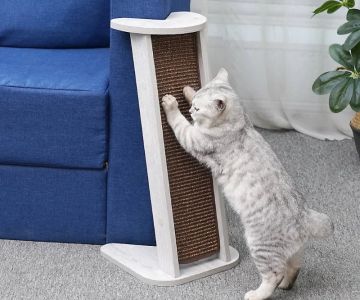
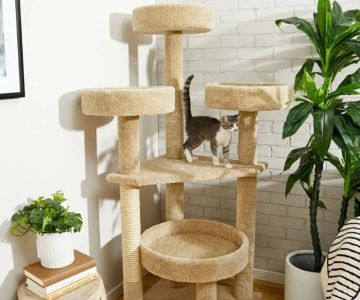


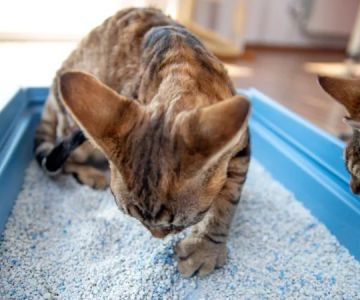
 VCA Valley Animal Hospital4.0 (233 reviews)
VCA Valley Animal Hospital4.0 (233 reviews) Critter's Cove1.0 (1 reviews)
Critter's Cove1.0 (1 reviews) Garden State Equine Veterinary Dentistry, LLC4.0 (17 reviews)
Garden State Equine Veterinary Dentistry, LLC4.0 (17 reviews) Hammer Aquatics4.0 (41 reviews)
Hammer Aquatics4.0 (41 reviews) Animal Sound, LLC0.0 (0 reviews)
Animal Sound, LLC0.0 (0 reviews) Braintree Veterinary Care4.0 (179 reviews)
Braintree Veterinary Care4.0 (179 reviews) The Best Calming Pheromone Diffusers for Anxious Cats
The Best Calming Pheromone Diffusers for Anxious Cats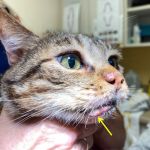 How to Help a Kitten with a Cold Sore: Essential Tips for Cat Owners
How to Help a Kitten with a Cold Sore: Essential Tips for Cat Owners How to Train Your Kitten to Use a Scratching Pad
How to Train Your Kitten to Use a Scratching Pad Why Does My Kitten Have a Crooked Tail? Understanding the Causes and Solutions
Why Does My Kitten Have a Crooked Tail? Understanding the Causes and Solutions Why Does My Kitten Have a Lump on Their Belly? Understanding the Causes and Solutions
Why Does My Kitten Have a Lump on Their Belly? Understanding the Causes and Solutions How to Keep Your Cat Active and Prevent Weight Gain - Fun, Health, and Playtime Tips
How to Keep Your Cat Active and Prevent Weight Gain - Fun, Health, and Playtime Tips